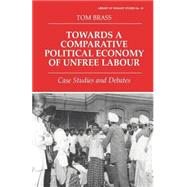- ISBN: 9780714644981 | 0714644986
- Cover: Nonspecific Binding
- Copyright: 9/29/1999
This book focuses on the relationship between economic growth in Third World agriculture and the employment of bonded labour, the ways in which the latter contributes to the process of workforce restructuring/recomposition, and the implications of this for the kinds of political action undertaken by rural labour. The first half is devoted to a presentation of fieldwork data from Peru and India, while the impact of the non-/mis-recognition of unfree labour on debates about the political economy of agrarian change is considered in the second part. Much current writing about agrarian change in the Third World assumes that capitalist development in agriculture necessarily and always transforms peasants into proletarians, that the expansion and operation of the industrial reserve army necessarily leads to and takes the form of free wage labour, and that where these exist, unfree production relations such as debt bondage are archaic forms destined to be eliminated in the course of this process. By contrast,it is argued that the incidence of unfree labour is much greater than generally supposed, may be increasing in specific contexts, and that in certain situations rural employers actually prefer this kind of workforce. The bonding of increasingly landless agricultural workers in many Third World contexts amounts to deproletarianisation, and it is therefore wrong to assume that economic development in agriculture always requires the emergence of a rural proletariat, and thus to categorize unfree production relations as anachronistic.







